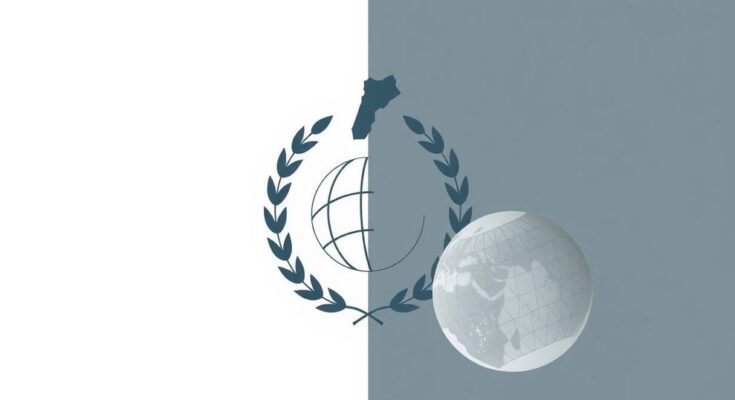President Trump is set to discuss his plan to relocate Palestinians from Gaza to Jordan, facing strong opposition from King Abdullah and Jordanian citizens due to concerns over national stability and historical grievances. The plan has led to protests in Jordan, reflecting fears of increased refugee inflows amid ongoing regional conflicts.
In a crucial meeting at the White House, President Donald Trump is expected to confront King Abdullah of Jordan regarding his controversial proposal to relocate Gaza’s population to Jordan. This plan has garnered significant opposition within Jordan, which must balance its military and diplomatic relations with popular support for Palestinians among its citizens. The ongoing Gaza War has intensified these challenges, placing Jordan in a precarious position.
Trump has expanded his controversial stance on the matter, suggesting that Palestinians displaced from Gaza should not have the right to return, a proposition that may breach international law. He has also hinted at the possibility of withholding aid to Jordan and Egypt unless they comply with his refugee relocation plan, further straining relations.
The sentiment among the Palestinian community in Jordan, particularly among those already displaced, is one of opposition to Trump’s plans. Individuals like Maher Azazi, who fled Gaza decades ago, express resentment towards Trump’s comments, viewing them as indicative of an outdated, colonial mindset. Azazi and others assert a commitment to their ancestral lands, with many saying they would rather face dire consequences than forsake their right to return.
Yousef, also from the refugee camp, emphasizes the historical context of Palestinian displacement, stating, “The right to return is a red line.” The perspective is shared widely among the Gazan community, who argue that their ancestors’ experiences inform their current resistance. The sentiment now is one of defiance, contrasting with previous generations’ beliefs about temporary refuge.
Jordan has faced numerous waves of refugees, from Iraqis fleeing conflict in the early 2000s to Syrians in more recent years. This influx has led to increasing domestic challenges, as native Jordanians cite unemployment and economic hardship attributed to the recent arrivals. Local frustrations with the strain on resources have led to rising tensions amid ongoing regional conflicts.
Imad Abdallah, a native Jordanian, articulates his struggles, which resonate with many citizens who feel overshadowed by the refugee crisis, stating, “The foreigners come and take our jobs.” His worries about providing for his family reflect the growing anxieties related to Trump’s proposals regarding Gazans.
The Jordanian government must navigate pressures from both its citizens and international allies like the United States. As Trump has already suspended substantial US aid to Jordan, a clash between US and Jordanian interests seems imminent. Former deputy prime minister Jawad Anani has stated that Jordan will oppose any forced relocation from Gaza, warning that such actions could lead to severe consequences.
Even under possible voluntary relocation scenarios proposed by Trump, distrust remains high, primarily due to ongoing Israeli policies. Anani adds, “As long as Netanyahu is involved… there is no confidence in any promises that anybody makes.” This climate of uncertainty may compel Jordan to reevaluate its position in the face of US pressure.
The wider implications of Trump’s ambitions regarding Gaza will inevitably test Jordan’s stability—a cornerstone of regional security. Thousands of Jordanians protested Trump’s plan, reflecting public sentiment against any measures perceived as compromising Palestinian rights. Jordan’s military collaborations with the US and their management of multiple refugee populations are crucial, thus emphasizing the need for a stable national response.
In summary, President Trump’s plan to relocate Gaza’s population to Jordan faces staunch resistance from King Abdullah and Jordanian citizens, underpinned by historical grievances and concerns over national stability. The proposal has reignited tensions and highlighted Jordanian fears surrounding the influx of refugees and the potential for regional unrest, necessitating careful diplomatic navigation amid US pressures. Jordan’s stance is indicative of a country wary of further destabilization amidst existing geopolitical turmoil.
Original Source: www.bbc.co.uk




